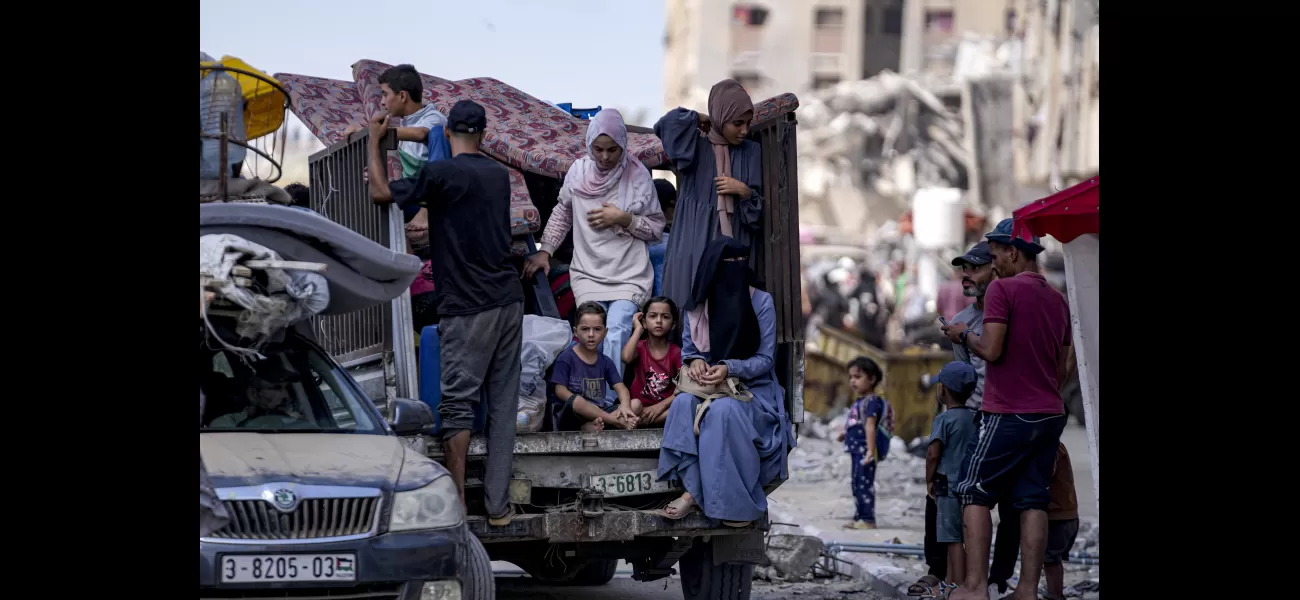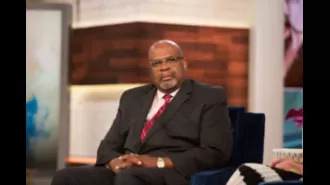Israel's insistence on a divided Gaza may threaten peace talks.
Last chance to prevent Iran from attacking Israel as tensions rise in the Middle East.
August 15th 2024.

A new round of talks has been held by international mediators overnight, with the aim of putting an end to the ongoing war between Israel and Hamas and securing the release of numerous hostages. This potential deal is seen as the best chance of preventing an even larger conflict from erupting in the region.
Representatives from the US, Qatar, and Egypt met with an Israeli delegation in Qatar, while the death toll among Palestinians rose to over 40,000 according to Gaza health authorities. Despite not being directly involved in the talks, Hamas has accused Israel of adding new demands to a previous proposal that had the support of the US and the international community, and to which Hamas had already agreed in principle.
White House National Security spokesperson John Kirby has called these talks an important step and expects them to continue into the next day. He also emphasized that there is still a lot of work to be done, given the complexity of reaching an agreement, and that the negotiators are focusing on how to implement it.
A cease-fire in Gaza would not only bring an end to the immediate tension, but also has the potential to calm regional tensions. Diplomats hope that it would prevent Iran and the militant group Hezbollah in Lebanon from retaliating for recent events, such as the killing of a top Hezbollah commander in an Israeli airstrike in Beirut and the assassination of Hamas' top political leader in a Tehran explosion.
However, Kirby has also warned that Iran has been making preparations for a potential attack and that their threats should not be taken lightly. The mediators have been working for months on a three-phase plan that would see Hamas releasing the hostages they captured on October 7 in exchange for a lasting cease-fire, the withdrawal of Israeli forces from Gaza, and the release of Palestinians imprisoned by Israel.
The plan, which was announced by US President Joe Biden on May 31, has been agreed upon in principle by both sides. However, Hamas has proposed some amendments and Israel has suggested clarifications, leading to accusations from both sides that the other is making new demands that are unacceptable.
Despite months of negotiations, significant gaps remain between the two sides. Hamas has rejected Israel's latest demands, which include maintaining a military presence along the border with Egypt and a line dividing Gaza where they would search for militants among returning Palestinians. Hamas spokesperson Osama Hamdan has stated that the group is only interested in discussing the implementation of Biden's proposal and not in further negotiations on its content.
However, a Palestinian official familiar with the talks has revealed that senior Hamas officials residing in Qatar are ready to discuss any proposals put forward by the mediators, as they have done in previous rounds. Meanwhile, Israeli Prime Minister Benjamin Netanyahu has denied that his country has made any new demands, but has also reiterated their commitment to achieving "total victory" against Hamas and the release of all hostages.
The main obstacle in the negotiations has been the transition from the first phase of the cease-fire, in which vulnerable hostages would be released, to the second phase, in which captive Israeli soldiers would be freed and a permanent cease-fire would be established. Hamas is worried that Israel will resume the war after the first batch of hostages is released, while Israel fears that Hamas will drag out the negotiations indefinitely.
Hamdan has presented documents showing that Hamas had agreed to a US bridging proposal, which included a timeline for talks on the transition to take place. However, more recently, Hamas has objected to what they claim are new Israeli demands for a presence along the Gaza-Egypt border and a dividing road in Gaza. Israel has denied that these are new demands, stating that their presence along the border is necessary to prevent weapons smuggling and that they must search Palestinians returning to northern Gaza to ensure they are not armed.
These demands were only made public recently, but according to documents verified by officials involved in the negotiations, a full Israeli military withdrawal has always been part of previous versions of the cease-fire proposal. US State Department spokesperson Vedant Patel has stated that the broader framework of the deal set out by Biden in May has generally been accepted, and that the negotiations are an ongoing process. Stay informed on all the latest breaking news, celebrity updates, and sports news by joining our WhatsApp channel. No comments, no algorithm, and your privacy is protected.
Representatives from the US, Qatar, and Egypt met with an Israeli delegation in Qatar, while the death toll among Palestinians rose to over 40,000 according to Gaza health authorities. Despite not being directly involved in the talks, Hamas has accused Israel of adding new demands to a previous proposal that had the support of the US and the international community, and to which Hamas had already agreed in principle.
White House National Security spokesperson John Kirby has called these talks an important step and expects them to continue into the next day. He also emphasized that there is still a lot of work to be done, given the complexity of reaching an agreement, and that the negotiators are focusing on how to implement it.
A cease-fire in Gaza would not only bring an end to the immediate tension, but also has the potential to calm regional tensions. Diplomats hope that it would prevent Iran and the militant group Hezbollah in Lebanon from retaliating for recent events, such as the killing of a top Hezbollah commander in an Israeli airstrike in Beirut and the assassination of Hamas' top political leader in a Tehran explosion.
However, Kirby has also warned that Iran has been making preparations for a potential attack and that their threats should not be taken lightly. The mediators have been working for months on a three-phase plan that would see Hamas releasing the hostages they captured on October 7 in exchange for a lasting cease-fire, the withdrawal of Israeli forces from Gaza, and the release of Palestinians imprisoned by Israel.
The plan, which was announced by US President Joe Biden on May 31, has been agreed upon in principle by both sides. However, Hamas has proposed some amendments and Israel has suggested clarifications, leading to accusations from both sides that the other is making new demands that are unacceptable.
Despite months of negotiations, significant gaps remain between the two sides. Hamas has rejected Israel's latest demands, which include maintaining a military presence along the border with Egypt and a line dividing Gaza where they would search for militants among returning Palestinians. Hamas spokesperson Osama Hamdan has stated that the group is only interested in discussing the implementation of Biden's proposal and not in further negotiations on its content.
However, a Palestinian official familiar with the talks has revealed that senior Hamas officials residing in Qatar are ready to discuss any proposals put forward by the mediators, as they have done in previous rounds. Meanwhile, Israeli Prime Minister Benjamin Netanyahu has denied that his country has made any new demands, but has also reiterated their commitment to achieving "total victory" against Hamas and the release of all hostages.
The main obstacle in the negotiations has been the transition from the first phase of the cease-fire, in which vulnerable hostages would be released, to the second phase, in which captive Israeli soldiers would be freed and a permanent cease-fire would be established. Hamas is worried that Israel will resume the war after the first batch of hostages is released, while Israel fears that Hamas will drag out the negotiations indefinitely.
Hamdan has presented documents showing that Hamas had agreed to a US bridging proposal, which included a timeline for talks on the transition to take place. However, more recently, Hamas has objected to what they claim are new Israeli demands for a presence along the Gaza-Egypt border and a dividing road in Gaza. Israel has denied that these are new demands, stating that their presence along the border is necessary to prevent weapons smuggling and that they must search Palestinians returning to northern Gaza to ensure they are not armed.
These demands were only made public recently, but according to documents verified by officials involved in the negotiations, a full Israeli military withdrawal has always been part of previous versions of the cease-fire proposal. US State Department spokesperson Vedant Patel has stated that the broader framework of the deal set out by Biden in May has generally been accepted, and that the negotiations are an ongoing process. Stay informed on all the latest breaking news, celebrity updates, and sports news by joining our WhatsApp channel. No comments, no algorithm, and your privacy is protected.
[This article has been trending online recently and has been generated with AI. Your feed is customized.]
[Generative AI is experimental.]
0
0
Submit Comment





